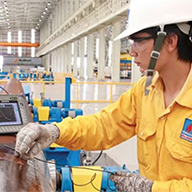[FTA Handbook] Overview of Vietnam’s FTAs 2023 - Part 1: What is FTA?
![[FTA Handbook] Overview of Vietnam’s FTAs 2023 - Part 1: What is FTA? [FTA Handbook] Overview of Vietnam’s FTAs 2023 - Part 1: What is FTA?](https://gl-m.linker-cdn.net/article/2023/Jul/ba47e999cbc1a9bc727e733beffb79f2.jpg)
Export Sector
105 week ago — 4 min read
A. What is FTA?
FTA - Free Trade Agreement, is the economic cooperation agreement signed between two or more parties, or in other words, is a form of international connection between countries. Based on these agreements, trade barriers including tariff and non-tariff barriers will be reduced or eliminated. The trade barriers might be in form of tariffs, export quotas, or other non-tariff such as technical standards, sanitary and epidemiological standards, etc.
FTA promotes the trade exchange between members, allowing different countries around the world gradually to form a united trading market for goods and services. Currently, many terms have been used such as EPA (Economic Partnership Agreement), RTA (Regional Trade Agreement, etc., but if the essence of the agreements is towards trade liberalization (including removing barriers and promoting trading), they will be recognized as FTAs.
B. Main Content of FTA
The definition of FTA may vary between countries. However, normally an FTA includes the main content listed below:
Firstly, FTA includes provisions on reducing tariff and non-tariff barriers. Accordingly, each country participating in the FTA agreement must commit to reducing or eliminating the tariff barriers, based on the final agreement reached between the parties. At the same time, the FTA includes provisions allowing goods and services of the country members to be exported and imported.
Secondly, FTA regulates the list of categories that will benefit from the preferential tariff. The category of the goods and services to be entered into will depend on the outcome of the negotiation. There might be some sensitive tariffs that will be loosened more slowly or will not be loosened at all.
Thirdly, FTA regulates the time for losing export tariffs. In FTAs, there must be a section that includes clear terms and conditions about the period or the roadmap for preferential tariff application. Normally, FTA has a duration of fewer than 10 years.
Fourthly, FTA regulates the rules of origin. This is very important and indispensable in FTA. Each type of good and service will have different regulations on preferential tariffs. The goods produced by the members engaged in FTA will receive greater benefits than those produced in other countries. Therefore, the provisions on rules of origin are often specified and required to be strictly followed to protect the interests of FTA’s members.
C. Principles of FTA
When participating in the negotiations and signings of FTA, countries and organizations, also known as members, need to ensure the following principles:
Firstly, FTA needs to ensure the fairness of economic interests between countries. The engaged members need to consider thoroughly the economic situation of each country to come up with the most equitable agreement.
Secondly, FTA needs to create new growth opportunities. Grasping the opportunities and challenges as well as the advantages and disadvantages is very important to help the negotiation achieve the highest efficiency. As a result, the signed FTA will contribute to the enhancement of the number, quantity and value of imported and exported categories, as well as attracting other foreign investment sources.
Compliance with the principles of FTA is necessary action by which FTA’s members can offer terms and conditions that are beneficial to all parties and make informed decisions during the negotiation process. As a result, members will support each other in different fields, contributing to the sustainable development of the economy.
(to be continued)
Source for reference: Ministry of Industry and Trade
View Linh 's profile
Other articles written by Linh Nguyen
SMEs là gì? – Định nghĩa SME ở các quốc gia ASEAN
105 week ago
Doanh Nghiệp Huy Động Vốn Như Thế Nào?
105 week ago
Most read this week
Trending
Get Efficient at Taking Decisions
Lãnh đạo & Quản lý 22 week ago
The Art & Science of People Pleasing in Retail
Bán lẻ 25 week ago
Khởi nghiệp 25 week ago















Comments
Share this content
Please login or Register to join the discussion